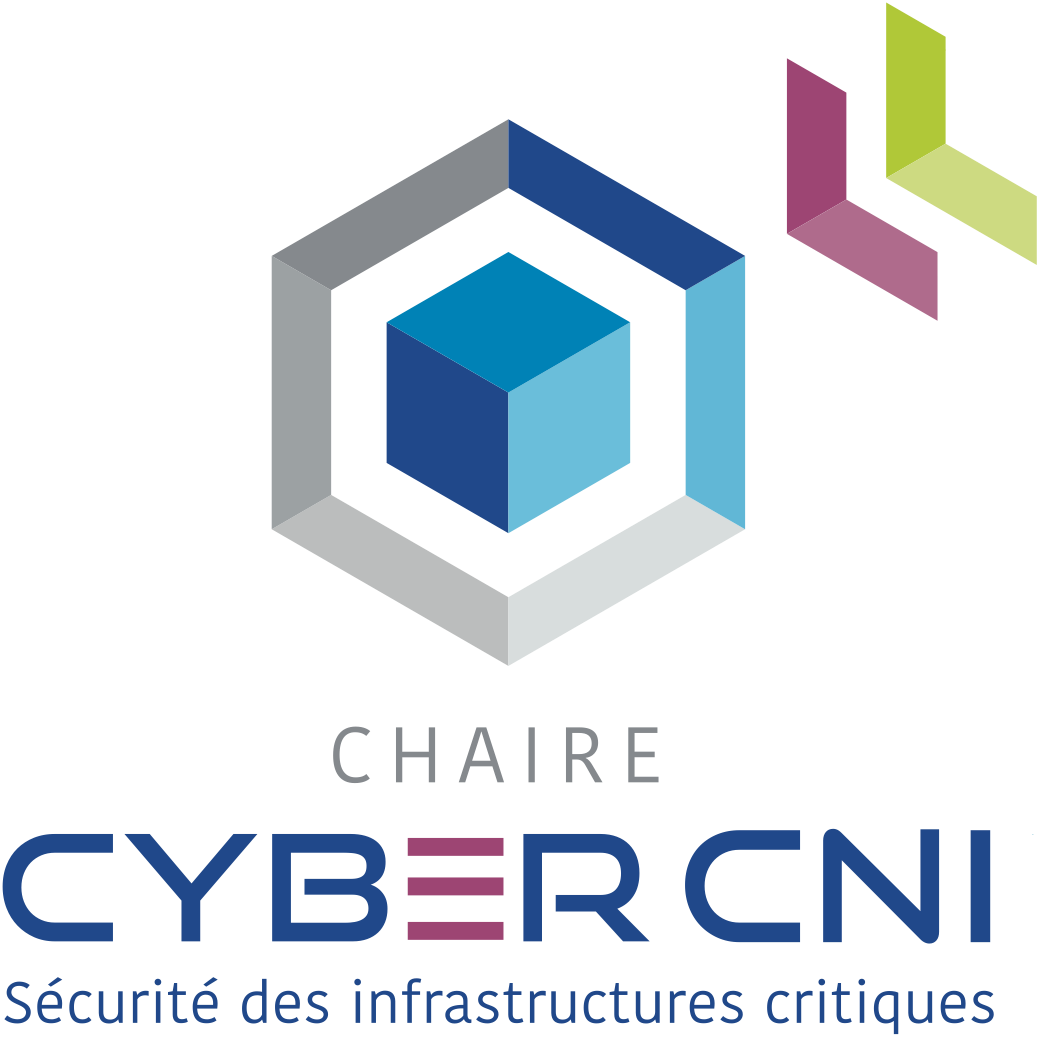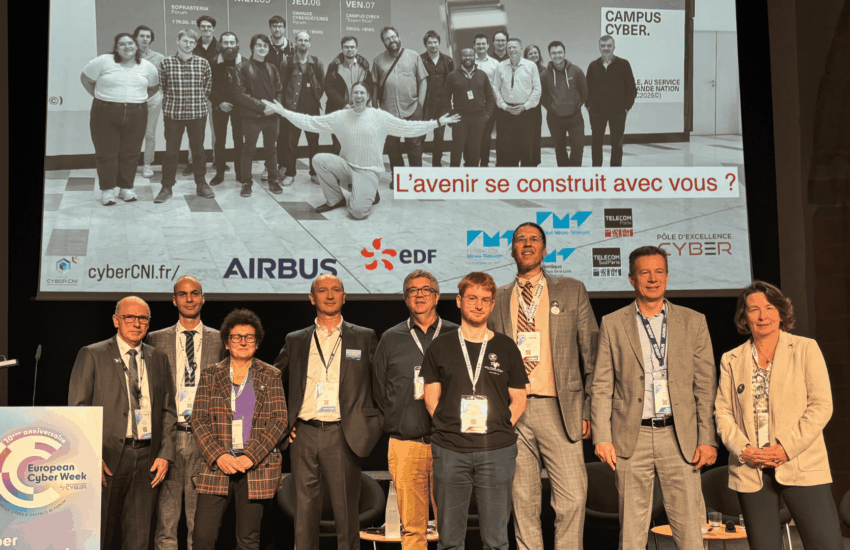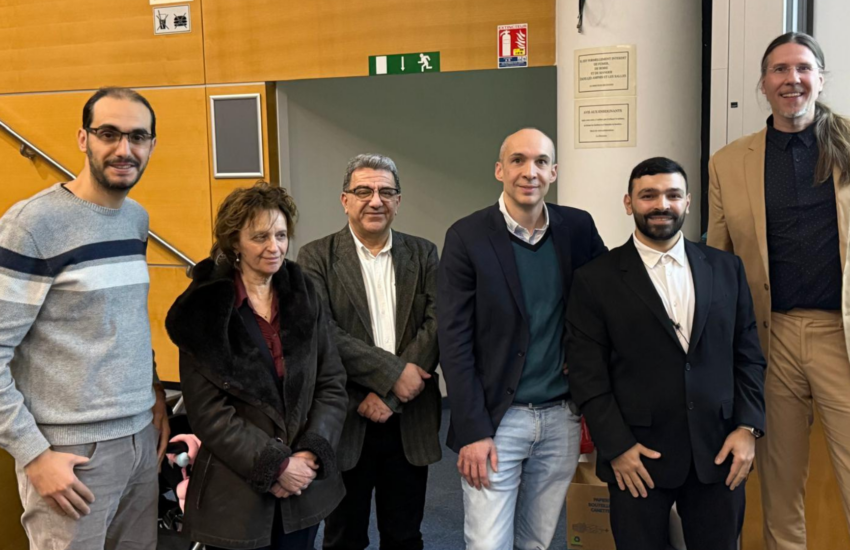[RU1/22] Zeinab Rahal : digital twins for cybersecurity
On the research update spring 2022, our PhD student Zeinab Rahal presented his latest results regarding “Digital twins for cybersecurity“. This presentation is a part of our bi-yearly research update events of the chair Cybersecurity for Critical Networked Infrastructures (cyberCNI.fr). More infos on our website https://cyberCNI.fr/
We cordially invite you to contact us for collaborations, partnerships, etc. We are constantly looking for new industry partners to strengthen our profile. Make an appointment to find out more!
Abstract
5G networks are vulnerable to cyber attacks, and concrete examples of attacks against networks have shown the consequences of exploiting these vulnerabilities. The proposed topic focuses on attacks against 5G networks, with a particular focus on the network slicing attacks. Specifically, it will study the capabilities of attackers who attempt to gain knowledge about the dynamics of a system. Such attackers can carry out sophisticated attacks that may elude current intrusion detection systems. The proposed approach will consist of studying the concept of a digital twin as an auxiliary to the intrusion detection system. More specifically, it will be about proposing solutions to design an adversarial twin adapted to security oversight functions and analyzing their robustness to detect complex and stealthy attacks. To validate the approach, the model will be compared to attacker models with sophisticated intrusion capabilities, based on in-depth knowledge of the system under attack as well as, possibly, of the functioning of the digital twin.
About Zeinab Rahal
She graduated from the Lebanese International University, Bekaa, Lebanon, with a Master of Science in Computer and Communication Engineering. She worked for several years in the Software Engineering domain. She holds a Research Master in Information Systems and Data Intelligence from the Lebanese University, Beirut, Lebanon. Before starting her PhD studies, she conducted a research internship at Télécom SudParis, working in Internet-of-Things (IoT) planning and Artificial Intelligence (AI). Her research interests include Wireless Communication, Optimization, AI, IoT and Cybersecurity.
About the cyberCNI.fr Research Update
The cyberCNI.fr (https://cyberCNI.fr/) Research Update (Spring/ Fall) happens once per semester. It is the big status event of the chair Cyber CNI. All works around the chair (PhD students, PostDocs, Engineers, …) are presenting their progress, current works, and next challenges. There are vital discussions with the audience on the topics. It is the perfect opportunity for getting an overview on and discussing what is going on at the chair. From the spring 2022 event on, the Research Updates start with an industrial keynote of one of our partners, giving insights to and showcasing their work.
About the chair Cybersecurity of Critical Networked Infrastructures (cyberCNI.fr)
The Cyber CNI Chair at IMT Atlantique is devoted to research, innovation, and teaching in the field of the cybersecurity of critical infrastructures, including industrial processes, financial systems, building automation, energy networks, water treatment plants, transportation. The chair covers the full stack from sensors and actuators and their signals over industrial control systems, distributed services at the edge or cloud, to user interfaces with collaborative Mixed Reality, and security policies. The chair currently hosts 6+3 PhD students, 1+3 PostDocs, 11 Professors, 1+1 engineers, and 1 internship student.
The chair runs a large testbed that enables applied research together with the industry partners. The industry partners of the current third funding round are Airbus, Amossys, BNP Paribas, EDF, and SNCF. The chaire is located in Brittany, France. Brittany is the cybersecurity region number 1 in France. The chair Cyber CNI is strongly embedded in the cybersecurity ecosystem through its partnerships with the Pôle d’Excellence Cyber (PEC) and the Brittany Region. The chair provides a unique environment for cybersecurity research with lots of development possibilities.
- Les AFTERS by Pôle Excellence Cyber - April 7, 2023
- Federated Learning as enabler for Collaborative Security between not Fully-Trusting Distributed Parties - February 10, 2023
- [RU2/22] Anthony DAVID : Virtual Reality for cybersecurity data vizualisation - December 21, 2022









